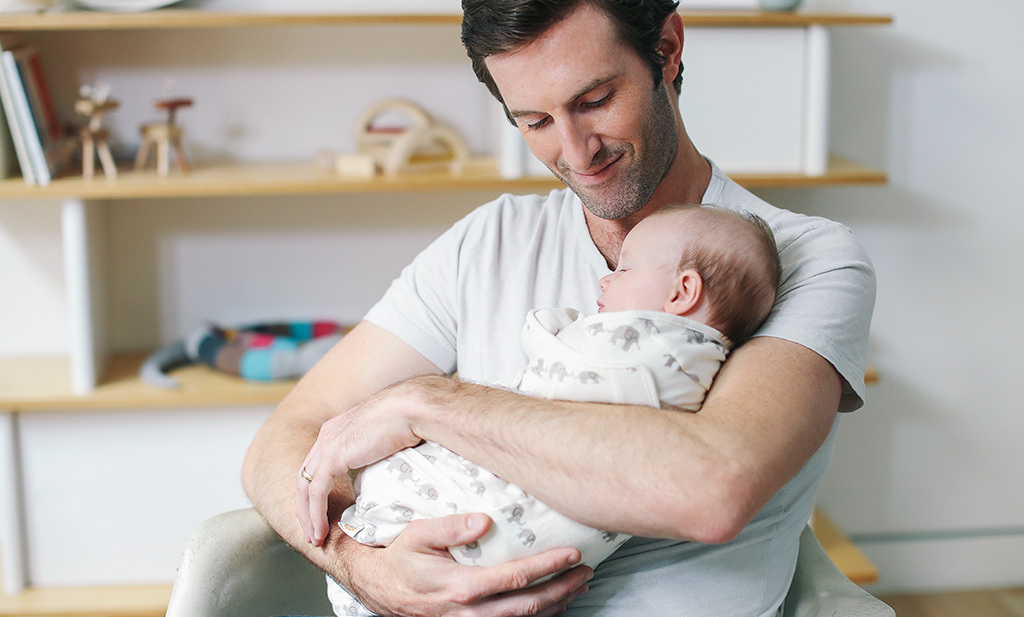To get back on track with baby sleep after the holidays, establish a consistent bedtime routine. Gradually adjust their sleep schedule to match pre-holiday patterns.
The holidays often disrupt baby sleep routines, leading to sleepless nights for parents. Festivities, travel, and changes in environment can throw off even the best sleep habits. As the holiday season ends, many families find themselves eager to restore order.
A consistent routine is essential for helping your baby feel secure and ready for sleep. Reintroducing familiar practices can ease this transition. Focus on calming bedtime rituals, such as reading or gentle rocking. Ensuring a comfortable sleep environment also plays a key role. With patience and persistence, you can help your baby return to restful nights and peaceful sleep.
Table of Contents
The Holiday Hangover: Baby Sleep Challenges
After the holidays, many parents face sleep issues with their babies. Festive celebrations often disrupt routines. Changes in environment and excitement can lead to sleep challenges. Understanding these factors can help parents get back on track.
Factors Disrupting Baby’s Sleep
- Altered Schedules: Late nights and irregular naps can confuse babies.
- Travel: New locations may affect a baby’s comfort and sleep.
- Visitors: Extra noise and activity can disturb sleep routines.
- Overstimulation: Exciting events may lead to overtiredness.
- Diet Changes: Holiday treats can upset a baby’s tummy.
Common Post-holiday Sleep Issues
| Sleep Issue | Description |
|---|---|
| Difficulty Falling Asleep | Babies may resist bedtime after a fun holiday. |
| Frequent Night Wakings | Babies wake up more often due to disrupted schedules. |
| Short Naps | Overstimulation leads to short, restless naps. |
| Increased Fussiness | Babies may cry more due to tiredness or discomfort. |
Pre-holiday Sleep Routines: The Impact Of Change
Holidays often bring joy but can disrupt baby sleep routines. Families travel, celebrate, and change schedules. These changes can confuse little ones. A consistent routine helps babies feel secure and calm.
The Importance Of Consistency
Consistency in sleep routines is crucial for babies. It helps them understand when it’s time to sleep. Here are some benefits of maintaining a consistent routine:
- Better Sleep Quality: Regular schedules promote deeper sleep.
- Improved Mood: Well-rested babies tend to be happier.
- Developmental Benefits: Sleep supports brain development.
Effects Of Routine Disruptions
Disruptions in routine can lead to various issues. Here are some common effects:
| Disruption Type | Potential Effects |
|---|---|
| Travel | Difficulty falling asleep and staying asleep. |
| Late Nights | Increased fussiness and crankiness. |
| New Environments | Heightened anxiety and sleeplessness. |
These disruptions can lead to a cycle of sleep issues. Parents may notice changes in behavior. Babies might resist sleep or wake frequently. Understanding the impact helps in planning a return to routine.
Signs Your Baby’s Sleep Pattern Is Off Track
After the holidays, many parents notice changes in their baby’s sleep. These changes can lead to frustration and exhaustion. Recognizing the signs of an off-track sleep pattern is crucial for restoring healthy sleep habits.
Spotting Irregular Sleep Cues
Pay attention to your baby’s behavior. Signs of irregular sleep cues include:
- Frequent fussiness: Is your baby more irritable than usual?
- Increased crying: Are they crying more often or for longer periods?
- Difficulty falling asleep: Is it taking longer for them to drift off?
- Shorter naps: Are naps becoming less restful and shorter?
- Waking frequently: Is your baby waking up more during the night?
Daytime Vs. Nighttime Sleep Shifts
Changes in sleep patterns can occur during the day and night. Monitor these shifts closely.
| Time of Day | Normal Sleep Behavior | Signs of Disruption |
|---|---|---|
| Daytime | 2-3 naps lasting 1-2 hours | Naps shorter than 30 minutes or skipping naps |
| Nighttime | 10-12 hours of uninterrupted sleep | Waking up multiple times or staying awake for long periods |
Recognizing these signs helps parents take action. Establishing a consistent routine can help your baby return to better sleep patterns.

Credit: ergobaby.ie
Assessing The Sleep Situation Post-holidays
After the holidays, many parents notice changes in their baby’s sleep patterns. Travel, visitors, and festive activities can disrupt routines. Assessing the sleep situation helps parents understand what adjustments are needed.
Evaluating The Extent Of Disruption
Start by observing your baby’s current sleep habits. Look for signs of disruption.
- Increased wake-ups during the night
- Difficulty falling asleep
- Shorter naps
- Early morning wake-ups
Track sleep patterns over a week. Use a simple table to note:
| Date | Bedtime | Wake Time | Night Wakings | Total Sleep |
|---|---|---|---|---|
| Day 1 | 7:30 PM | 6:30 AM | 2 | 11 hours |
| Day 2 | 8:00 PM | 6:00 AM | 3 | 10 hours |
| Day 3 | 7:45 PM | 6:15 AM | 1 | 11 hours |
Analyzing this data helps identify sleep issues. Recognize patterns in wake times and disturbances.
Setting Realistic Expectations For Recovery
Recovery takes time. Expect gradual improvement, not instant results.
- Babies need consistency to adjust.
- Re-establish a bedtime routine.
- Be patient with the process.
Consider these tips:
- Stick to a consistent sleep schedule.
- Limit screen time before bed.
- Create a calming bedtime environment.
- Encourage self-soothing techniques.
Focus on small victories. Celebrate each step towards better sleep.
Strategies To Re-establish Sleep Routines
After the holiday season, many parents face sleep challenges. Routines often shift during festive times. Re-establishing a good sleep routine is crucial for your baby’s well-being. Here are effective strategies to help you get back on track.
Gradual Adjustments Vs. Immediate Changes
Deciding how to adjust your baby’s sleep schedule is essential. You can choose between gradual adjustments or immediate changes.
| Method | Pros | Cons |
|---|---|---|
| Gradual Adjustments |
|
|
| Immediate Changes |
|
|
Consider your baby’s temperament. Some babies respond well to gradual changes. Others may adapt quickly to immediate changes. Choose what feels right for your family.
Creating A Calming Bedtime Environment
A calming bedtime environment is vital for restful sleep. Here are key elements to include:
- Dim Lighting: Use soft lights to signal bedtime.
- Comfortable Temperature: Keep the room cool and cozy.
- White Noise: Use a white noise machine to drown out distractions.
- Soft Textures: Choose gentle bedding and sleepwear.
Establishing a calming routine helps babies feel secure. Consider activities like:
- Reading a book.
- Gentle rocking or swaying.
- Soft lullabies or soothing sounds.
Consistency is key. Stick to the same bedtime routine each night. This helps your baby know it’s time to sleep.

Credit: takingcarababies.com
Sleep Training Methods To Consider
Getting your baby back on track after the holidays is crucial. Sleep training can help restore their sleep routine. Different methods suit different families. Explore some popular techniques below.
Pros And Cons Of Different Techniques
| Technique | Pros | Cons |
|---|---|---|
| Ferber Method |
|
|
| No Tears Method |
|
|
| Chair Method |
|
|
Choosing The Right Method For Your Baby
Selecting the right sleep training method depends on your baby’s needs. Consider their age, temperament, and your family’s lifestyle. Here are some tips:
- Evaluate your baby’s sleep habits.
- Think about your parenting style.
- Discuss options with your partner.
- Research different techniques.
- Trust your instincts and choose what feels right.
Every baby is unique. What works for one may not work for another. Adjust the method as needed. Be patient and consistent for the best results.
The Role Of Daytime Naps In Restoring Balance
After the holidays, many babies struggle with sleep. The excitement of festive activities can disrupt their regular routine. Daytime naps play a crucial role in helping babies regain balance. Proper naps support nighttime sleep and enhance overall well-being.
Scheduling Naps For Optimal Nighttime Sleep
Creating a consistent nap schedule is essential. A regular routine helps babies feel secure. Here are key points for scheduling naps:
- Establish a daily routine.
- Set consistent nap times.
- Observe your baby’s natural sleep cues.
Consider the following example for a 6-12 month old:
| Age | Morning Nap | Afternoon Nap | Bedtime |
|---|---|---|---|
| 6-9 months | 9:00 AM – 10:30 AM | 1:30 PM – 3:00 PM | 7:00 PM |
| 10-12 months | 9:30 AM – 11:00 AM | 1:30 PM – 2:30 PM | 7:30 PM |
Adjusting Nap Lengths And Timing
Adjusting nap lengths can improve nighttime sleep quality. Short naps may lead to overtiredness. Here are tips for adjusting naps:
- Limit morning naps to 1-1.5 hours.
- Keep afternoon naps between 1-2 hours.
- Monitor your baby’s mood and energy levels.
Be flexible with timing. If your baby seems tired, offer a nap earlier. Watch for signs of sleepiness, like rubbing eyes or fussiness. These adjustments help restore balance and improve sleep.
Diet And Nutrition: Their Effect On Baby’s Sleep
A baby’s diet plays a crucial role in their sleep quality. Proper nutrition can help regulate sleep patterns. After the holiday feasts, many babies may need some adjustments. Parents should focus on foods that promote better sleep.
Foods To Promote Sleep
Some foods can help your baby sleep better. These foods contain essential nutrients that support sleep. Here’s a list of sleep-promoting foods:
- Bananas: Rich in potassium and magnesium.
- Oatmeal: Contains melatonin and complex carbohydrates.
- Turkey: High in tryptophan, which aids sleep.
- Sweet Potatoes: Full of vitamins and fiber.
- Cherries: Natural source of melatonin.
It’s important to introduce these foods gradually. Monitor your baby’s reaction to each new food. Keep a food diary to track what works.
Avoiding Stimulants Before Bedtime
Stimulants can disrupt your baby’s sleep. Avoid giving these foods close to bedtime:
- Caffeine: Found in chocolate and some drinks.
- Sugary Snacks: Can cause energy spikes.
- Spicy Foods: May upset the stomach.
Stick to calming foods before sleep. Create a peaceful bedtime routine. A calm environment can help your baby wind down. Offer a warm bath or gentle rocking to soothe them.
Parental Well-being And Its Impact On Baby’s Sleep
After the holidays, many families face challenges with baby sleep. Parental well-being plays a crucial role in this process. Stress and sleep deprivation can directly affect how well a baby sleeps. Happy and rested parents create a calm environment. This helps babies feel safe and secure.
Managing Your Own Sleep Deprivation
Sleep deprivation affects parents deeply. It leads to irritability and poor decision-making. Here are some tips to manage your own sleep:
- Prioritize sleep: Make sleep a top priority.
- Share nighttime duties: Take turns with your partner.
- Nap when possible: Short naps can recharge you.
- Establish a routine: Create a consistent sleep schedule.
Small changes can make a big difference. Focus on improving your sleep quality. This positively impacts your baby’s sleep as well.
Stress Reduction Techniques For Parents
Stress can disrupt both your sleep and your baby’s sleep. Implementing stress reduction techniques is essential. Here are effective methods:
- Practice deep breathing: Inhale deeply, hold, and exhale slowly.
- Engage in physical activity: Exercise releases endorphins and reduces stress.
- Set aside “me time”: Enjoy activities that make you happy.
- Connect with others: Talk to friends or join a support group.
- Mindfulness or meditation: Focus on the present moment.
Implementing these techniques can help you feel more relaxed. A relaxed parent leads to a more peaceful baby. Stress management is vital for both parent and child.
Involving Siblings In The Sleep Routine Reset
Resetting baby sleep routines after the holidays can be tricky. Involving siblings can make this process easier. Older children can play a big role in helping their younger siblings. They can create a smooth transition back to healthy sleep habits.
Encouraging Older Children’s Help
Older siblings can be great allies during this time. Here are some ways to encourage their help:
- Explain the Situation: Talk to older kids about the need for a routine.
- Assign Roles: Give them specific tasks to help with bedtime.
- Make It Fun: Create bedtime games or stories involving everyone.
Older siblings can feel important and responsible. This helps them bond with the baby. It also creates a calm bedtime atmosphere.
Maintaining Harmony Among Siblings
Keeping peace between siblings is essential. Here are some tips to maintain harmony:
- Set Clear Boundaries: Let everyone know bedtime rules.
- Encourage Teamwork: Foster cooperation between siblings during bedtime.
- Reward Positive Behavior: Use a sticker chart for good sleep habits.
When siblings work together, bedtime becomes easier. They learn to support each other. This creates a loving, peaceful environment for everyone.
When To Seek Professional Help
After the holidays, baby sleep routines can change. Some babies may face ongoing sleep issues. Recognizing these problems is key to deciding if you need help.
Recognizing Persistent Sleep Issues
Monitor your baby’s sleep patterns closely. Here are signs that indicate persistent sleep issues:
- Frequent night awakenings.
- Difficulty falling asleep.
- Short naps during the day.
- Extreme fussiness or irritability.
- Changes in appetite or feeding patterns.
Track these behaviors for at least two weeks. If issues continue, it may be time to seek help.
Resources And Experts In Infant Sleep
Many resources are available for parents needing assistance. Consider these options:
| Resource | Description | Contact Method |
|---|---|---|
| Sleep Consultant | Helps create a customized sleep plan. | Email or phone consultation. |
| Pediatrician | Can rule out medical issues affecting sleep. | In-person or telehealth appointment. |
| Online Support Groups | Connect with other parents for advice. | Social media or online forums. |
| Books and Articles | Provide tips on improving infant sleep. | Available at libraries or online. |
Seeking help can provide relief and improve sleep for your baby. Understanding when to act is essential for better rest.
Monitoring Progress And Adjusting Tactics
After the holiday season, many parents face sleep challenges with their babies. Routine changes can disrupt sleep patterns. Monitoring progress helps identify what works best. Adjusting tactics keeps your baby on a healthy sleep schedule.
Keeping A Sleep Diary
Tracking your baby’s sleep can reveal patterns. A sleep diary helps you see what works. Here’s how to keep a simple sleep diary:
- Record bedtime: Note the time your baby goes to sleep.
- Wake time: Write down when your baby wakes up.
- Nap times: Keep track of daytime naps.
- Duration: Note how long your baby sleeps at night and during naps.
- Behavior: Write down any changes in mood or fussiness.
Review the diary weekly. Look for trends in sleep quality. Adjust bedtime or nap times based on observations. Making small changes can lead to big improvements.
Being Flexible With Methods
Every baby is unique. What works for one may not work for another. Stay open to different sleep methods. Here are some strategies to consider:
- Gradual sleep training: Slowly teach your baby to self-soothe.
- Consistent routine: Follow the same bedtime routine each night.
- Comfort items: Introduce a favorite blanket or toy for security.
- Environment: Ensure the room is dark and quiet.
- Adjust as needed: Be ready to change your approach if necessary.
Flexibility is key. What works today may need adjustment tomorrow. Stay patient and keep trying new methods to find what helps your baby sleep best.
Celebrating Milestones And Successes
Getting back on track with baby sleep after the holidays can be challenging. Celebrating milestones and successes helps parents stay motivated. Each step forward deserves recognition. Acknowledging achievements boosts confidence and creates a positive environment.
Acknowledging Small Wins
Every small win matters in the journey of baby sleep. Recognizing these wins can inspire parents. Here are some examples of small wins:
- Baby sleeps for 30 minutes longer than usual.
- Bedtime routine is completed without fuss.
- Baby falls asleep with less assistance.
- Waking up only once during the night.
Celebrate these moments. Take a moment to appreciate your efforts. Keep a journal to track these small victories. Writing them down reinforces positive behavior.
Maintaining A Positive Outlook
A positive mindset is essential for success. Focus on the progress made, not the setbacks. Here are ways to maintain a positive outlook:
- Practice gratitude daily. List three things you are grateful for.
- Share experiences with other parents. Support each other.
- Set realistic goals for baby sleep.
- Reward yourself for achieving sleep milestones.
Remember, setbacks are normal. Keep your focus on the journey. Every step forward is a step towards success.

Credit: www.lilbabysleep.com
Frequently Asked Questions
How Can I Reset My Baby’s Sleep Schedule?
Establish a consistent bedtime routine and gradually shift sleep times to their usual schedule.
What Causes Sleep Disruptions After Holidays?
Changes in routine, increased excitement, and travel can all disrupt your baby’s sleep patterns.
How Long Does It Take To Adjust?
Adjusting back to a regular sleep schedule can take one to two weeks, depending on the baby.
What Are Tips For Better Baby Sleep?
Create a calm sleep environment, stick to a routine, and limit screen time before bed.
Conclusion
Getting back on track with baby sleep after the holidays is essential for everyone’s well-being. Establishing a consistent routine can help your baby adjust smoothly. Be patient and gentle during this transition. With time and effort, peaceful nights will return.
Prioritize sleep for a happier, healthier family dynamic.







